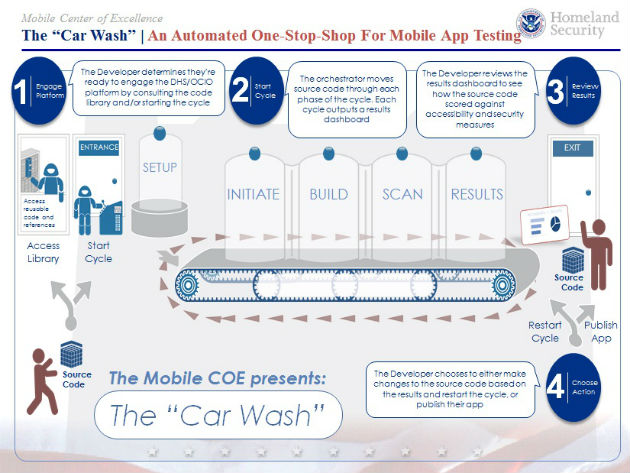Mobile challenges go beyond the technical
When developing mobile apps, federal agencies face a variety of obstacles in meeting users’ needs.
The challenges facing federal agencies that develop their own wireless applications can leap beyond technical nuts-and-bolts issues into the wider world of everyday demands.
Yes, agencies have to decide between HTML5 and native device architecture. But more prosaically, they have to address questions such as: How do you use the app when you';re a couple hundred feet underground?
"We have a great opportunity to engage mine operators" with mobile labor applications, said Mike Pulsifer, manager of mobile programs at the Labor Department. "But there is no cell service at many mine locations."

Broadband wireless availability is just one of the many challenges federal agencies face in their quest to more efficiently provide government services and data, Pulsifer said during a Dec. 12 AFCEA panel discussion in Bethesda, Md. "People want answers quick," said Atiq Warraich, Web program director in the National Archives and Records Administration's Office of Innovation. The government's challenge is to meet that demand in a cash-strapped environment, he added, which requires understanding potential users and how they might use the available data.
NARA is making a vast amount of information available via its Citizen Archivist Dashboard, where volunteers electronically tag, transcribe and write articles about documents that NARA posts on the site. Warraich said making such raw data available to consumers can go a long way in developing better mobile applications. The "citizen workforce" accessing the dashboard could be extended to create a "mobile citizen workforce" that can develop its own set of apps more efficiently than NARA might be able to, he added.
That's not to say agencies don't face a series of basic technical questions. Keith Trippie executive director of the Enterprise System Development Office in the Department of Homeland Security's Office of the CIO, raised the question of whether it is better to use HTML5 or a native mobile operating platform to present information via mobile apps.
The responses showed that application development is closely tied to an individual agency's data. Jacob Parcell, manager of mobile programs at the General Services Administration's Office of Citizen Services and Innovative Technologies, said each approach has its advantages.
"The benefit for HTML5 [is] that it is platform agnostic," he said. "You don't have to worry about individual devices." On the other hand, you won't get the advantages of smartphones' inherent operating abilities.
"Ask yourself what you're doing," Parcell said. "Is it a mostly one-time information-based use, or is it a product or service that needs more connectivity?"
Trippie noted that cultural issues could also have an impact on mobile application development. For instance, the impulse for agencies to build their own apps could hamper them in the long run because they might reinvent something that other agencies have already put together.
He advocated using apps developed by agencies or bits and pieces from existing apps. He touted DHS' development of the "car wash" mobile app tester as an example of the resources agencies have at their disposal. DHS uses the tester to run new federal mobile apps through a series of security and accessibility checks before they are released.
Parcell said GSA launched the Mobile Code Catalog last summer as a clearinghouse of federal apps, commonly used coding and mobile frameworks. Using existing and tested coding and frameworks can take some of the hard work out of app development, he added.
The panelists called on industry to help agencies move through the technical aspects of developing mobile applications. Commercial app developers are sometimes better at exploiting the huge volumes of data flowing from federal agencies, and they can also help by allowing agencies to reuse existing code to develop new apps.
"Instead of building one app, build 10" based on code used in previous apps, Trippie said. "We don't have the cash" for one-off projects.





